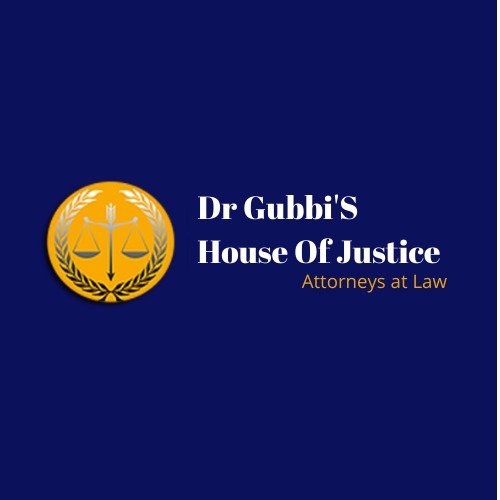Best Conveyancing Lawyers in Bengaluru
Share your needs with us, get contacted by law firms.
Free. Takes 2 min.
Free Guide to Hiring a Real Estate Lawyer
List of the best lawyers in Bengaluru, India
About Conveyancing Law in Bengaluru, India
Conveyancing law in Bengaluru, India refers to the legal process of transferring property ownership from one person to another. This can include residential homes, commercial properties, and land. Conveyancing involves preparing, verifying, and executing legal documents that recognize the change in ownership. Bengaluru, being a major metropolitan city, is governed by both state laws under Karnataka and central property regulations. The process ensures that the buyer obtains the full legal title on the property and that all statutory dues have been cleared.
Why You May Need a Lawyer
Conveyancing may appear straightforward, but it involves complex legal paperwork and strict compliance with local laws. Some common situations where you may need a lawyer for conveyancing in Bengaluru include:
- Buying or selling residential, commercial, or industrial property
- Gift or transfer of property between family members
- Inheritance or succession related transfers
- Drafting or reviewing sale deeds and agreements
- Verification and due diligence of property titles and ownership records
- Resolving disputes related to property boundaries or encroachments
- Dealing with jointly-owned or leased properties
- Handling complex transactions with multiple parties
- Ensuring payment of stamp duty and registration charges
- Rectification of errors in property documents
A lawyer can provide legal safeguards, help prevent fraud, and ensure all formalities are properly completed, thereby saving you time and money in the long run.
Local Laws Overview
Conveyancing in Bengaluru is primarily governed by the following laws and regulations:
- Transfer of Property Act, 1882: Regulates the transfer and sale of property rights.
- Indian Registration Act, 1908: Mandates the registration of property transactions with the local Sub-Registrar Office.
- Karnataka Stamp Act, 1957: Governs payment of stamp duties which are required for property transfer documents in Karnataka, including Bengaluru.
- Karnataka Land Revenue Act, 1964: Deals with revenue records and is essential for mutation and ownership changes in government records.
- Bangalore Development Authority (BDA) and Bruhat Bengaluru Mahanagara Palike (BBMP) regulations: Local authorities have specific rules on property layout approvals, land use, and building regulations.
Additionally, due diligence is required to ensure there are no encumbrances, pending loans, or litigation affecting the property. All land records and transactions must be verified with the local authorities, and proper mutation of records needs to be done post-transfer.
Frequently Asked Questions
What is conveyancing?
Conveyancing is the legal process of transferring property ownership from one party to another by drafting, verifying, and registering property documents.
When is conveyancing required?
Conveyancing is required whenever ownership of immovable property such as land, houses, or flats is being transferred by sale, gift, inheritance, or lease.
What are the main steps in the conveyancing process?
The main steps include verification of title and encumbrances, drafting the sale agreement, payment of stamp duty, registration with the local sub-registrar, and mutation of revenue records.
Can I do property registration myself without a lawyer?
While it is legally possible, hiring a lawyer is highly recommended to ensure due diligence, accuracy in documents, and compliance with laws, as mistakes can lead to expensive disputes later.
What is an encumbrance certificate and why is it important?
An encumbrance certificate is a government-issued document that certifies whether the property has any legal dues or mortgages. It is essential for buyers to verify clear title.
How is stamp duty calculated in Bengaluru?
Stamp duty in Bengaluru is calculated as a percentage of the property's sale value or guidance value, whichever is higher, as per the Karnataka Stamp Act.
Who pays the registration charges during property transfer?
Typically, the buyer pays the registration charges, which are calculated separately from stamp duty and are paid at the local sub-registrar's office during registration.
What documents are needed for conveyancing?
Commonly required documents include the sale deed, parent documents, khata certificate, latest tax paid receipts, encumbrance certificate, and approved building plan.
How long does the conveyancing process take in Bengaluru?
The process can take anywhere from a few days to a few weeks, depending on the complexity of the transaction, document readiness, and government process timelines.
What should I do if I discover an error in my property documents after registration?
Contact a property lawyer immediately to rectify the document. A rectification deed may be executed and registered with the sub-registrar to correct errors.
Additional Resources
For more information or assistance relating to conveyancing in Bengaluru, consider reaching out to the following resources:
- Karnataka Department of Stamps and Registration for stamp duty and property registration information
- Bangalore Development Authority (BDA) for land and layout approvals
- Bruhat Bengaluru Mahanagara Palike (BBMP) for khata, property tax records, and local property laws
- Bangalore District Sub-Registrar Offices for registration process queries
- Legal clinics and bar associations in Bengaluru that offer consultation and guidance on property matters
Next Steps
If you require legal assistance with conveyancing in Bengaluru, consider the following steps:
- Gather all available property documents and records, including title deeds, tax receipts, and approvals
- List your questions or concerns regarding your specific property transaction
- Contact a qualified property lawyer or legal professional experienced in conveyancing
- Request a thorough title verification and due diligence check before finalizing any deal
- Get legal assistance for drafting and reviewing sale deeds, agreements, and related documents
- Ensure proper payment of stamp duty and registration of the sale deed with the relevant sub-registrar
- Follow up with mutation of revenue records post-transaction for a fresh owner entry
Proper legal guidance can make the transfer process smooth, protect your interests, and help you avoid common pitfalls in property transactions in Bengaluru.
Lawzana helps you find the best lawyers and law firms in Bengaluru through a curated and pre-screened list of qualified legal professionals. Our platform offers rankings and detailed profiles of attorneys and law firms, allowing you to compare based on practice areas, including Conveyancing, experience, and client feedback.
Each profile includes a description of the firm's areas of practice, client reviews, team members and partners, year of establishment, spoken languages, office locations, contact information, social media presence, and any published articles or resources. Most firms on our platform speak English and are experienced in both local and international legal matters.
Get a quote from top-rated law firms in Bengaluru, India — quickly, securely, and without unnecessary hassle.
Disclaimer:
The information provided on this page is for general informational purposes only and does not constitute legal advice. While we strive to ensure the accuracy and relevance of the content, legal information may change over time, and interpretations of the law can vary. You should always consult with a qualified legal professional for advice specific to your situation.
We disclaim all liability for actions taken or not taken based on the content of this page. If you believe any information is incorrect or outdated, please contact us, and we will review and update it where appropriate.















